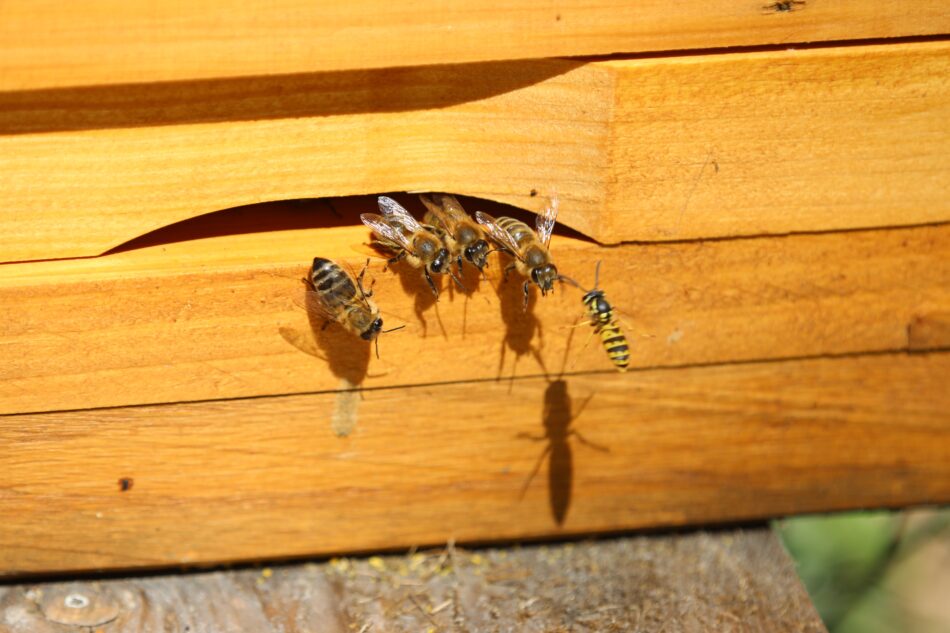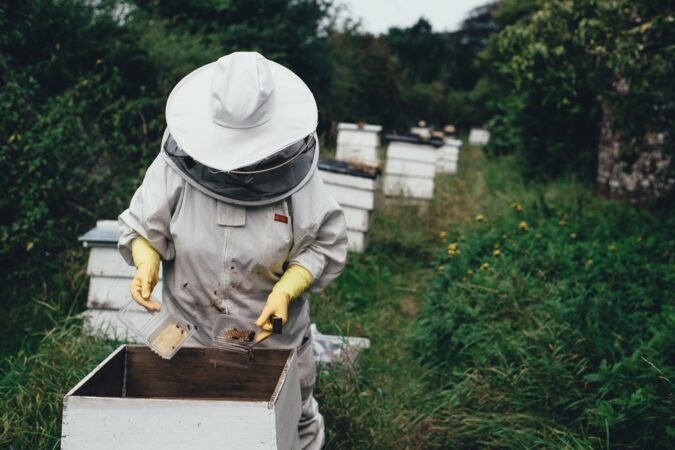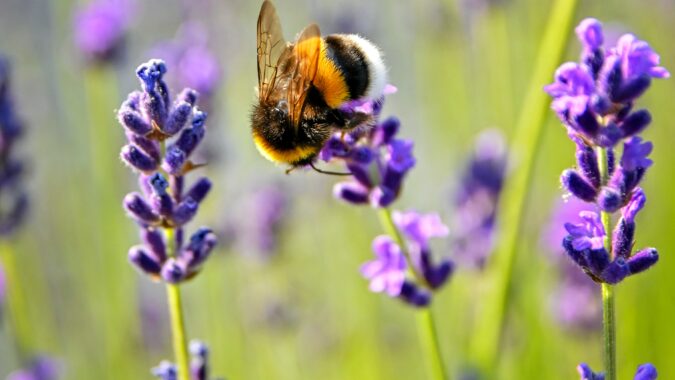
Bees-ness Waste
It’s always a hive of activity here at Business Waste. Our team are constantly buzzing around to help your company’s waste removal run smoothly. One minute they’ll be collecting everyday recyclables, the next picking up and disposing of specialist waste streams such as hazardous, clinical, and electrical waste. But we feel we can do more to help the environment.
While plenty of businesses promise to plant trees to help offset their carbon footprint – and that’s great – we like to think outside the forest. As we’re busy bees ourselves, what better way to protect our planet than by supporting our little black and yellow friends by introducing a new beehive every year? So that’s what we’re doing.
Why bees?
Bees are vital for a healthy environment. They help protect food security, encourage growth of trees and wild plants, and contribute significantly to diverse and complex interconnected ecosystems. Oh, and they produce plenty of delicious honey. How do they do all this? Mainly through their roles as pollinators.
Their job of moving pollen between flowering plants keeps the lifecycle going. As most plants we need for food require pollination – as well as wildflowers – bees are essential to help keep us well fed. There are other pollinating insects and animals, like beetles, some birds, and even bats, but bees are the primary ones.
Pollination works by bees gathering pollen for their nests and to feed their baby bees. Their branched hairs (scopae) or combs of bristles on their legs (conveniently known as pollen baskets) catches pollen as they visit different plants. Going from plant to plant fertilises each one – aka pollination.

What’s the idea behind
Bees-ness Waste?
At Business Waste, we aim to introduce one new beehive every year. That might not sound a lot, but did you know one hive can house a colony of 20,000 to 60,000 bees? And it can produce between 14 to 27kg of honey in a season.
More importantly, the thousands of bees that live in each hive have a much wider positive environmental impact. This includes pollinating many tree species like willows and poplars to encourage woodland growth. And of course, trees are essential to protect our environment and battle against global warming, as they absorb carbon dioxide.
Bee numbers are in decline due to many reasons, including farming techniques, use of pesticides, and climate change. Beekeeping is the obvious solution to help sustain their numbers and ensure pollination continues at a healthy rate.
We’ve already got two hives up and running, not far from our headquarters in York, with the plan to add a new one each year.
So, while it’s an easy pun to make, the idea of introducing new hives also aligns with our values of having as positive an impact as possible on the environment. And what better way to help it thrive than with a new hive?
Bee facts
- One beehive can be home to between 20,000 and 60,000 bees.
- There are more than 20,000 known bee species around the world – including around 270 species of bee found in the UK.
- 90% of plants need cross-pollinating to spread and grow.
- Around the world, more than 80 million beehives produce about 6 million tonnes of honey every year.
- It’s estimated that the services of bees and other pollinators in the UK are worth about £691m – which would cost £1.8 billion to employ people to do such work.
- Sadly, in the UK we’ve lost 13 bee species and another 35 are at risk.
- The UN declared 20th May ‘World Bee Day’ – to raise awareness of their importance to our planet.

Get a fast and free quote
Get a fast FREE quote for any waste collections
- Free quote within 1 hr
- Any type of waste
- FREE bins and delivery
- We cover all of the UK